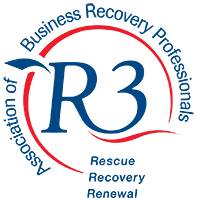Can I start a business while in an IVA?
When IVAs (Individual Voluntary Arrangements) were first introduced, they were actually designed with business owners in mind. The 1986 Insolvency Act introduced IVAs as a way for businesses to deal with their debts.
This benefitted both businesses and their creditors, since it meant that they could avoid bankruptcy, and be given another chance to flourish, whilst creditors made back more of their money than they would if the company had been bankrupted.
IVAs can still be used by business-owners today, but because they are a form of legal insolvency, people often wonder what the implications of an IVA are for existing or new businesses. We clarify this below.
If you’re self-employed
It is entirely possible to enter into an IVA if you are self-employed, but there are some key differences to bear in mind.
Flexible contributions
If you are self-employed, your monthly income is likely to be more irregular than someone who works for a company.
Because of this, what you pay towards your IVA can be more flexible. You will need to prepare a cash-flow statement to advise your Insolvency Practitioner (IP) how much your income fluctuates from month to month.
Self-employed IVAs are designed to take this into account, and you might end up increasing or reducing your payments over the course of the IVA. This is totally acceptable, as long as you keep in touch with your IP to advise them of changes in your circumstances so payments can be adjusted.
Business-related credit
Understandably, being in an IVA reduces your access to credit. However, when someone who is self-employed enters into an IVA, things can be slightly more flexible. You will still need your IP’s permission to obtain more than £500 of credit, but you may be able to exclude one line of business credit from your IVA, and repay them separately, in order to continue your working relationship.
Business bank accounts
If your business account is overdrawn, and you need this line of credit to cope with the running costs of your business, you may be able to keep the account. However, if it is overdrawn by a large amount, it might be more sensible to include it in your IVA agreement.
Additionally, if you hold other lines of credit with the same bank, such as a business loan, the bank may exercise the ‘right to offset’. This means they could seize money paid into your business account to offset your other debts. If this is a risk, opening a new business account, and including the old one in your IVA, is usually the best option.
Limited companies
IVAs are available regardless of whether you are a sole trader or own a limited company. It’s also possible to register your business as a limited company whilst you are in an IVA. Whilst in an IVA, unlike bankruptcy, you are completely free to be the director or shareholder of a company, so making the decision to go limited will not be affected by your IVA.
It is important to carefully consider any changes to your employment during an IVA, though, as you will need to continue making your agreed-upon payments in order to successfully complete it.
As mentioned earlier, some flexibility is allowed, but if you will be unable to make your original payments for an extended period of time, your creditors will have to agree to the lower amount, which they might not be willing to do. This could put your IVA at risk of failing, which can sometimes lead to bankruptcy.
Starting a new business during an IVA
There is nothing stopping someone who is in an IVA from establishing a new business. Like all financial decisions, this should be carefully considered, however. Although starting a new business can be the right long-term decision, it may be advisable to wait until you have completed your IVA, or even until you have rebuilt your credit score.
This is because you may struggle to obtain credit and a business bank account during or immediately after an IVA – when potential banks, and other lenders see you have entered into an IVA, they will know that you have had trouble repaying credit in the past and be more cautious about lending to you. Any potential changes to your employment status should be discussed with your IP.
Self-employed IVAs and your assets
One key advantage which IVAs have over bankruptcy is that you will be able to retain your assets – including your property if you are a homeowner. With a self-employed IVA, you can still keep all of your assets in the vast majority of cases, but there are a few exceptions you should consider.
IVAs were originally designed with business owners in mind, so it makes sense that this solution for repaying your debts disrupts trading far less than bankruptcy would. Nonetheless, there are instances where a few assets might need to be sold.
Business-related assets
Your creditors are likely to make a far better return on what they lended you if your business continues to operate. For this to happen, of course, you will need to retain the tools, equipment, vehicles, or technology associated with the business, and will not be required to relinquish any of these assets. In a few cases, you may be asked to replace very valuable work-related assets with less expensive ones, and pay the difference towards your IVA.
For example, if your business requires you to travel, and you currently own a valuable luxury car, you might be asked to replace it with a practical, inexpensive alternative. Even if you are asked to replace a business-related asset or to, you will never be asked to forego something which is necessary for your business to function.
Personal assets
As mentioned earlier, IVAs protect your assets. In some rare cases, you might be asked to sell a highly valuable vehicle. However, if you can prove that the vehicle is necessary for your work, which it is likely to be if you are self-employed, you will be able to keep it, or at least a cheaper model. If you own a low-value vehicle, you will probably not be asked to sell it even if it is not deemed necessary to your work, since your creditors would be unlikely to really benefit from its sale by the time administrative costs were covered.
Your home
Unlike going through bankruptcy, having an IVA does not put your home at risk. However, if you have enough equity in it, you may be asked to release some in the final year of the IVA’s term by remortgaging. Exactly what happens will depend on how much equity you have in your property:
If you have £5,000 or less worth of equity
If you have little or no equity in your home – £5,000 or less – you will not be asked to release it for your IVA. Instead, you can either make an extra year’s worth of monthly IVA payments, or a third party can make a lump-sum payment in lieu of home equity, agreed upon by your creditors. If you do not own a home, you will also need to make either an extra twelve payments or have a third party offer a lump sum.
If you have more than £5,000 of equity
If you have significant equity in your home – more than £5,000 – you will be asked to release some in order to complete your IVA. You will not be asked to release all of your equity, however, but up to 85%.
In some cases, it is impossible to release equity because mortgage providers refuse to remortgage a property. If this occurs, you must instead agree to make an additional 12 months of payments, or have a third party make a lump sum payment towards your IVA on your behalf.
Parkfield Insolvency will not charge you a fee for initial information and signposting. If you were to proceed and implement a recommended debt solution where fees are applicable, full details will be provided before setting up. Parkfield Insolvency proposes and administers Individual Voluntary Arrangements (IVAs). Advice is provided on the basis that there is reasonable contemplation of an insolvency appointment, once it is apparent that an IVA is likely to be the most appropriate debt solution. The debt solutions offered by Parkfield Insolvency Limited only apply to residents of England, and Wales.
Parkfield Insolvency is a trading style of Parkfield Insolvency Limited, Company Number 14371483, registered in England and Wales, at Dalton House, Cross Street, Sale, M33 7AR.
Peter Jackson is authorised by the Insolvency Practitioners Association to act as a Licensed Insolvency Practitioner.
To qualify for an IVA with Parkfield Insolvency, you must have a minimum of £6,000 of qualifying unsecured debt owed to two or more creditors
There is potentially a debt write off in some IVAs. However, the amount of debt written off differs for each customer depending upon their individual financial circumstances and is subject to the approval of their creditors.
Data Protection Act Registration Number – ZB399874. To find out more about managing your money and getting free advice, visit Money Helper, an independent service set up to help people manage their money.
All Rights Reserved | Parkfield Insolvency Ltd


